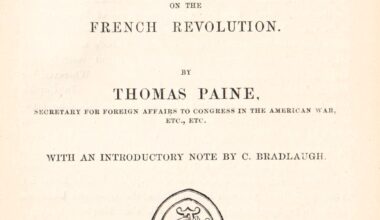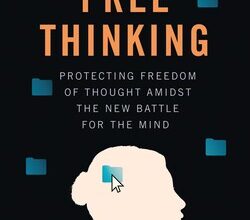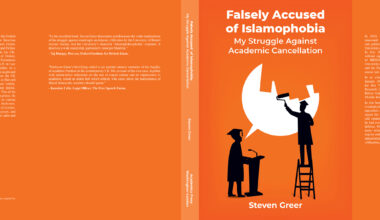This piece was originally published on the National Secular Society’s website on 13 October 2025.
Last week’s Crown Court judgment marked an important victory for free expression – and for our work defending it.
In February, Hamit Coskun burned a Quran during a one-man protest outside the Turkish embassy. He hurt no one, threatened no one, and acted peacefully. Yet he was convicted of a religiously aggravated public order offence and fined.
Now, following an appeal backed by the National Secular Society and the Free Speech Union, the High Court has ruled that his protest did not break the law.
Mr Justice Bennathan’s judgment could not be clearer:
“There is no offence of blasphemy in our law. Burning a Koran may be an act that many Muslims find desperately upsetting and offensive. The criminal law, however, is not a mechanism that seeks to avoid people being upset, even grievously upset. The right to freedom of expression, if it is a right worth having, must include the right to express views that offend, shock or disturb.”
This landmark ruling is a vital affirmation of the principle at the heart of a liberal democracy.
We supported and co-funded Coskun’s appeal not because we approve of what he did, but because of the fundamental importance of this principle. Free expression isn’t there to protect only polite or popular speech. It’s true test lies in protecting speech that provokes, disturbs, or offends. That principle was on trial here.
The case was not about whether Coskun’s Quran-burning protest was admirable; it was about whether his actions were criminal. The ruling came back with a resounding no.
Let’s recap. Coskun’s protest was a symbolic act of dissent against the Erdogan regime in Turkey and the Islamist ideology behind it. It targeted no individual – only ideas.
The violence that day was committed against him: a man threatened to kill Coskun and then attacked him with a knife; another passerby kicked him while he lay on the ground. The knifeman received a suspended 20-week sentence and was spared jail. The other assailant was never caught.
Coskun was taken to hospital, where he was arrested and later charged with causing “harassment, alarm or distress” against “the religious institution of Islam”, a throwback to previously abolished blasphemy laws.
Only after we intervened did prosecutors abandon that absurd charge and swap it for another. But the prosecutors’ original intention was clear: the case revealed a disturbing readiness to appease religious outrage by criminalising offence.
This latest ruling – a model of clear and rational reasoning – is a necessary and welcome corrective to a deeply flawed original judgment.
It gives proper weight to the protections for free expression found in English common law and enshrined in the European Convention on Human Rights – something the original ruling sorely lacked.
It recognises that context matters. It accepts that Coskun’s actions were not directed at a person or people in particular. It was a short, peaceful, solo, political protest outside a consulate building. It was not “disorderly”.
The ruling also overturns the confused reasoning of the original judgment, which deemed Coskun’s protest “disorderly” because it provoked “serious public disorder”– in other words, because he was attacked by two separate individuals. That was plainly victim blaming. Justice Bennathan’s judgement rightly cautions against courts “allowing the criminal reaction of one person to make a criminal of another for exercising their right to free speech”.
And vitally, this judgment restores the essential distinction between attacks on individuals and criticism of ideas, a line fundamental to any free society – and those now seeking to embed a government definition of “Islamophobia” would do well to remember it.
The implications of this case reach far beyond one man’s protest. The ruling underscores that freedom of expression cannot depend on public approval. Once offence becomes grounds for prosecution, the space for genuine dissent rapidly diminishes.
Our commitment to free speech is tested not by the words and actions we like, but by those we disagree with and despise.
Free speech is not about agreeing with someone; it’s about defending their right to speak freely, even when we find their words offensive.
We successfully campaigned for Britain’s blasphemy laws to be abolished. This ruling helps ensure they are not reintroduced by stealth under the banner of “public order.” Coskun remains in hiding under threat, yet his stand has strengthened the rights of everyone in Britain.
This is more than one man’s vindication. It is a reminder that liberty depends on our willingness to defend it – especially when it offends. The National Secular Society will continue to stand for that principle. Because without it, none of our other freedoms can endure.
Related reading
Convicted for blasphemy in modern Britain: an interview with Hamit Coskun, by Daniel James Sharp
Blasphemy Laws 2.0: The conviction of Hamit Coskun, by Noel Yaxley
Image of the week: Hamit Coskun, victim of a new form of blasphemy law?, by Daniel James Sharp
Coskun’s conviction is a surrender to Islamic blasphemy codes, by Stephen Evans
The burning question: are blasphemy laws back? by Stephen Evans
Image of the week: 20 years since the Jyllands-Posten cartoons controversy, by Daniel James Sharp
Islam and free speech, 20 years on from Jyllands-Posten: interview with Jacob Mchangama, by Daniel James Sharp









Your email address will not be published. Comments are subject to our Community Guidelines. Required fields are marked *
Donate